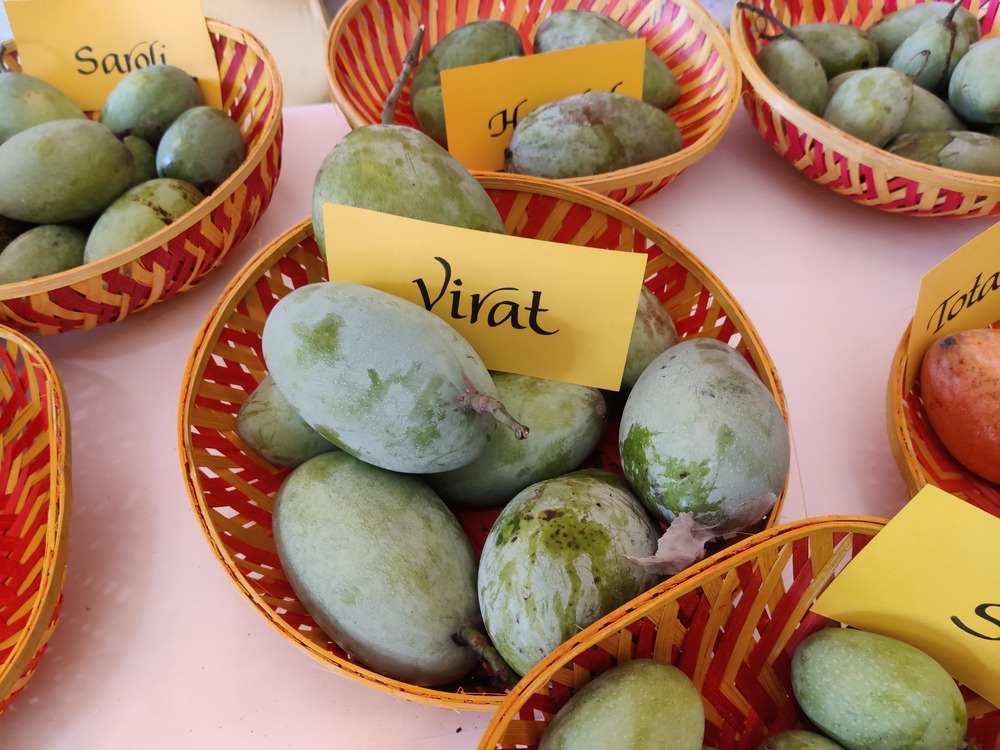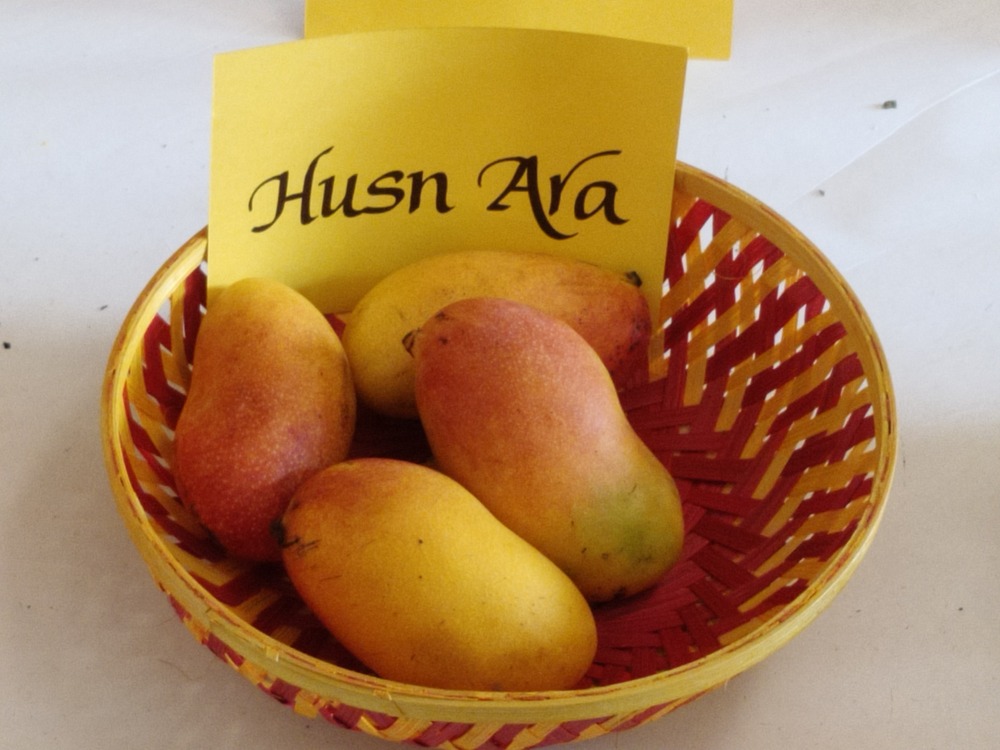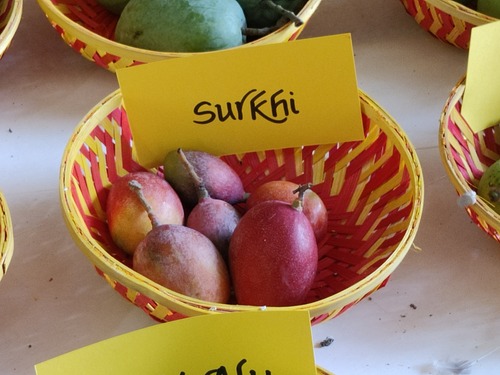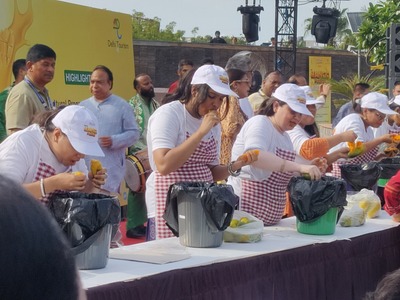Food & Lifestyle
A mango dedicated to Virat Kohli at Delhi Haat

Virat Kohli made an appearance in the form of a large-sized mango at the Mango Festival held in Janakpuri's Dilli Haat and organised by the Delhi government
08 Jul, 2024
The Delhi government-organised Mango Festival at the Delhi Haat in Janakpuri had, among others, a variety dedicated to Virat Kohli, the world record holder for most centuries in ODIs.
It was only apt that the variety was at display just days after the former India skipper and arguably one of Delhi’s most famous sons quit T20 International cricket, and that too just eight kilometres from where Kohli grew up and spent his formative years.
“We launched this variety 6-7 years ago, prior to Covid when he was getting big runs, and hitting big shots. You see its size. It is big in size because it is dedicated to the big scores he got and big shots he used to play. I used to watch him ardently,” said mango grower Tariq Mustafa, who had come from Muzaffarnagar to showcase his produce and had plenty of varieties at display.
Kohli led India to the T20 World Cup title win with a match-winning knock in the final against South Africa at Bridgetown, Barbados.
The mango dedicated to Kohli was green in colour, and lay beside a variety called Mahi which though wasn’t named after Mahendra Singh Dhoni.
“This is named after my daughter, not Dhoni as you think,” added Mustafa.
Among Mustafa’s most treasured variety was Husn Ara, which he says he cultivates “only for my family and a few close friends, including the doctor who treats me”.

“I have only two trees for Husn Ara.”
Mind you, his Husn Ara was different from the Husn Ara of another grower and had a sweet powdery texture, marshmellowish mango taste that was was lingered on.
There were the famed mangoes from Uttar Pradesh’s Malihabad and other parts of the state, besides Bihar, Bengal, Haryana and other states.

There were plenty of variety that was red or maroon in colour, standing out for its unusual colour.
Outside the display stall, mangoes were up for sale. The mango ice cream from a local factory from Malihabad was thronged and attracted a queue of customers.
There was heavy footfall over the three days the festival was held (July 5, 6, and 7). There were food stalls and cultural programmes and fun rides and games for children.

There was also the mango eating competition for men and women and one could spot the competitors soiling their shirts while eating the fruit wildly to the sound of music. There was also mango quiz and slogan writing competition.
Tags :